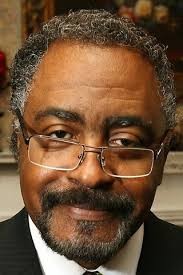
State Rep. John DeBerry
Interviewed by WATN-TV, Local 24, in Memphis on Thursday for a segment to be broadcast on Sunday, State Rep. John DeBerry (D-Memphis) predicted that the forthcoming House vote on school vouchers will be “close” because of exaggerated criticism from opponents, including many of his Democratic colleagues, forecasting ill consequences: “…apocalypse, the zombies are coming, everything is going to fall apart, and so forth.”
The long-serving DeBerry, a businessman and minister whose sprawling, ethnically mixed District 90 takes in much of Midtown, along with large expanses of North and South Memphis, has long endorsed the voucher concept, whereby public funds can be set aside in selected cases as tuition support at private educational institutions. That sets him apart from most other Democrats and African Americans in the legislature.
DeBerry characterized himself as an early advocate of a vouchers system: “Myself and a few others, we were talking about vouchers before it was cool.” He suggested that a vouchers approach to education was “just another tool in the toolbox, just another innovation” at a time when the state has been “involved in educational innovation for at least 10 years.”
As he put it, “We created this [public education] system, and we have a right to re-create it for today.” Downplaying the potential shock effect of vouchers on public school systems, DeBerry said, “The number of parents who would use vouchers has shrunk because of [the superfluity] of choices.”
The Memphis legislator argued that the main vouchers bill, sponsored by state Senator Brian Kelsey (R-Germantown) and defined so as to be a de facto pilot program in Memphis, is limited to 5000 students, eligible for stipends of no more than $7000 each. Acknowleding that such a sum would be insufficient to cover tuition at numerous private institutions, he noted that the bill stipulates that “private schools participating have to accept students at the amount of money allocated for the student.”
The program would depend on “parent initiative,” DeBerry said. “The state’s not going to put somebody in a school. The parent will.”